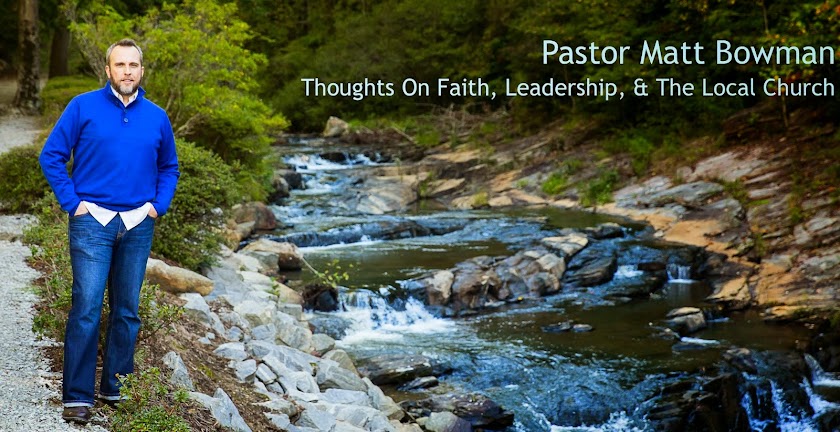An ugly lie is running wild in our churches & in our lives. It's the reason why there doesn't seem to be real connections & relationships happening. It's why so many worship leaders are frustrated that those they lead seem to be going through the motions or disengaged. It's part of the reason so many believers & church members are so tired. Ready for the lie that we so often believe? Here it is:
Spiritual Maturity=Self-Sufficiency
Now remember, you would never say you believe this with your lips, but what about with your life? We sometimes think that a solid, mature Christian either has no problems or can handle all of the problems that they do have. However, deep inside, in those places where we actually face reality, we know our lives are a wreck, but we can't let anybody know. What will they think? After all, a growing, mature believer shouldn't deal with this. So we try to fix ourselves. The only problem is that we couldn't fix ourselves before Jesus, & we still can't fix ourselves after Jesus. Only Jesus transforms us. Could it be that the heights of spiritual maturity are actually marked by radical self-insufficiency, a radical awareness of our deep, constant need for the work of God in & through us?
Consider these words from Lamentation 3:22-23, "Because of the LORD's great love we are not consumed, for his compassions never fail. They are new every morning; great is Your faithfulness." How about that? God extends new mercy to His people everyday. Maybe that's because we need His mercy poured out, like new, everyday. We have to guard ourselves & our churches from the lie that the goal is self-sufficiency. In fact, it's just the opposite; we're to grow more & more dependent on God as we become more grounded & more mature in our faith.




